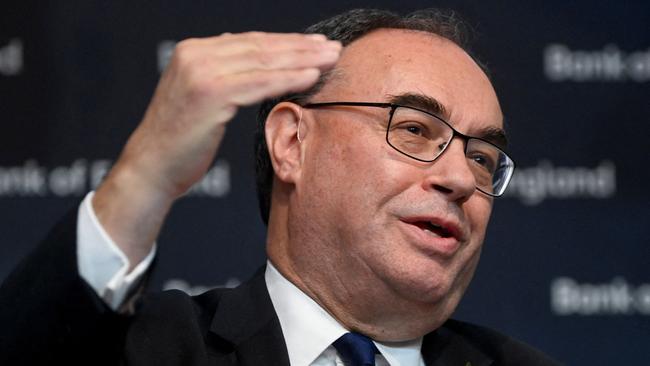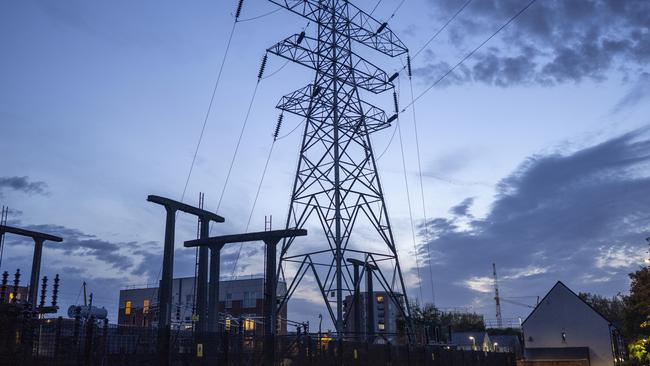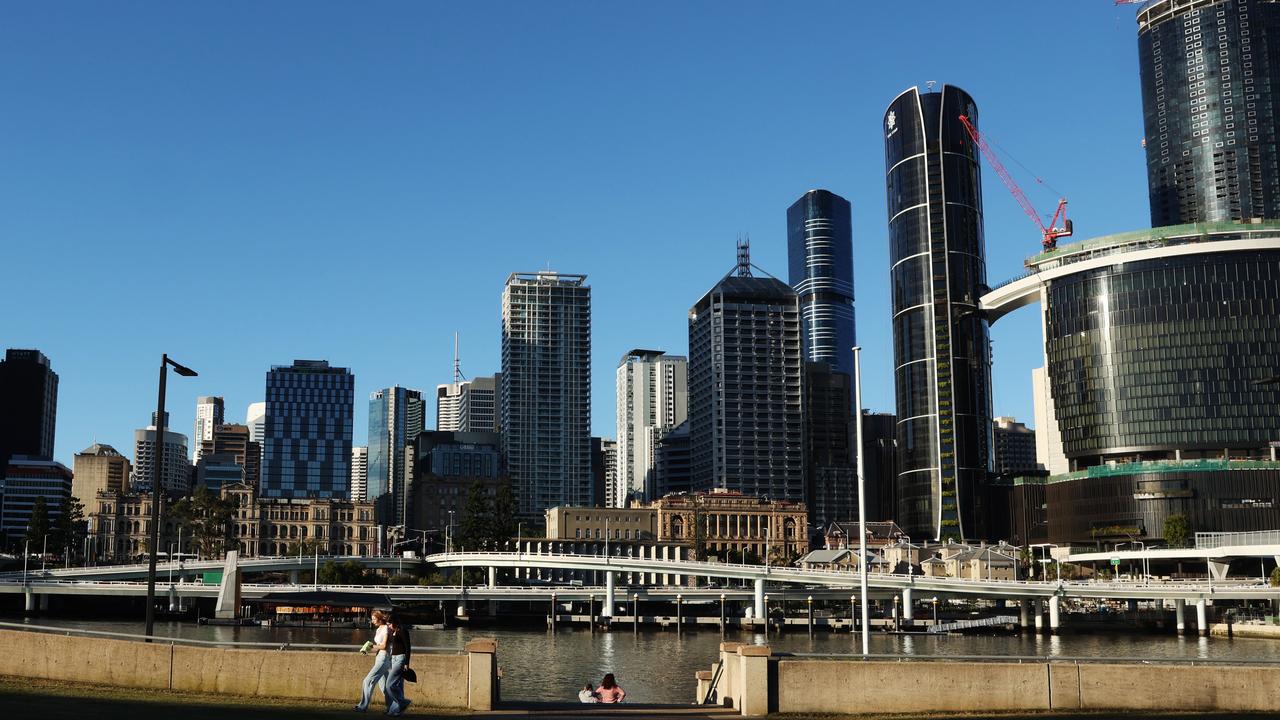UK recession fears after Bank of England’s 75bp rate rise
The Bank of England’s largest increase since 1989 will likely drive the UK economy into a recession lasting over a year.

The Bank of England raised its key interest rate by 0.75 percentage point overnight, the largest increase since 1989, in an effort to tame surging inflation but which, by the bank’s own estimates, will help drive the UK economy into a recession lasting over a year.
The central bank lifted its benchmark lending rate for the eighth consecutive meeting to 3 per cent from 2.25 per cent, taking it to the highest level since November 2008.
Higher borrowing costs will hurt an already weak economy as consumers brace for a difficult winter of falling real incomes and rising prices.
The bank said the UK economy likely entered a recession in the three months through September, when output fell an estimated 0.5 per cent, and said it expected a lengthy economic contraction, the duration and depth of which depended on how high the bank raises rates to corral prices.
“It is a tough road ahead,” Bank of England governor Andrew Bailey said at a news conference.
“The sharp rise in energy prices has made us poorer as a nation.”
After the announcement, the pound weakened against the dollar and UK government bonds sold off.
The yield on the 10-year bond rose to 3.52 per cent, from 3.42 per cent the previous day.
The unusually large rate rise underscores the difficult choices faced by European central banks.

Across the continent, soaring energy prices from the Ukraine war are driving inflation even as high energy costs hurt businesses and economic activity far more than in the US, where energy costs are lower.
For central banks, raising borrowing costs to contain the inflation will only increase the economic pain.
The Bank of England made it clear that the amount it raises the key lending rate could cause significant damage to economic growth.
The bank said that if it raises interest rates to the level expected by UK financial markets – to a peak of 5.25 per cent late next year – that would cause the economy to contract 1.5 per cent next year and a further 1 per cent in 2024, causing unemployment to rise to 6.5 per cent by the end of 2025.
That would mark the longest UK recession since records began in the 1920s.
The bank, however, signalled that it doesn’t expect to raise rates as much as investors anticipate.
“Further increases in Bank Rate may be required for a sustainable return of inflation to target, albeit to a peak lower than priced into financial markets,” it said.
Still, even if the bank keeps its current rate of 3 per cent, the UK economy is likely to endure a recession until the last quarter of next year, it said.
The reaction on financial markets, including higher yields on UK government debt, suggested that some investors are concerned the BOE won’t be aggressive enough in raising rates and that inflation could remain elevated in the long-term.
Higher inflation would also undermine the value of the pound.
“The big surprise for markets today is Bailey saying that market pricing for the terminal rate is too high,” said Jordan Rochester, foreign exchange strategist at Nomura.
“That’s helped accelerate sterling lower.”
The Bank of England’s move came a day after the Federal Reserve also raised its key rate by three-quarters of a percentage point and signalled plans to keep raising it, possibly in smaller increments but to higher levels than previously anticipated – a different message than the one from the UK central bank.
Bank of England officials said the likely divergence in interest-rate paths reflects the fact that the UK’s economic outlook is darker.
“The pandemic was a common shock to all of us, the war is not,” said deputy governor Ben Broadbent, referring to the conflict in Ukraine.
“We have a really big difference in the path of growth and that explains quite a lot of what divergence there is in policy.”
The Bank of England first raised its key rate in December, three months earlier than the Fed, but has since moved more cautiously.
That has drawn criticism that it hasn’t tightened policy enough to clamp down on inflation, but some former policy makers also say the central bank can do little to affect energy prices and shouldn’t raise its key rate further.
In the 12 months through September, UK prices rose 10.1 per cent, matching the July figure in recording the fastest increase in 40 years.
The UK central bank’s policy decision comes after a period of economic and political turbulence triggered by a surprise package of tax cuts announced by former Prime Minister Liz Truss in late September.
The absence of a plan to contain government borrowing over the medium term spooked investors, leading to a collapse in government-bond prices and the departure of Ms Truss a month later.
The Bank of England bought government bonds to prevent a market meltdown.
Since then, the UK government has shelved the tax-cut plans and vowed a series of tax increases and spending cuts that it says will lower debt as a share of the economy later this decade, easing pressure on the central bank to try to offset the inflationary impact of Ms Truss’s plans through far larger rate increases.
The central bank said it hadn’t taken account of those planned moves in its decision on Thursday, but will do when it next decides policy in December.
“The most important thing the British government can do right now is to restore stability, sort out our public finances, and get debt falling so that interest-rate rises are kept as low as possible,” said Jeremy Hunt, the UK’s Treasury chief, in response to the central bank’s move.
The central bank’s decision to raise borrowing costs will add to the difficulties facing households and businesses as they prepare to navigate a winter of recession and rising prices, a combination that will squeeze incomes.
The Bank of England said on Thursday a government cap on energy prices that is set to last until April would limit the rate of inflation during that period, and expects a peak of 10.9 per cent before the end of this year, down from 13 per cent previously.
But the central bank forecast the inflation rate would remain high through next year and only fall back below its 2 per cent target in 2024.
The immediate outlook for interest rates is complicated by divisions among the nine members of the MPC.
While seven of those voted to raise the key rate to 3 per cent, Swati Dhingra voted for a half-point rise, and Silvana Tenreyro voted for a quarter-point move.
“They’re forecasting weak growth and ultimately weaker inflation, which is telling the market they’re ultimately not going to hike as much,” James Athey, an investment manager at Abrdn.
– The Wall Street Journal


